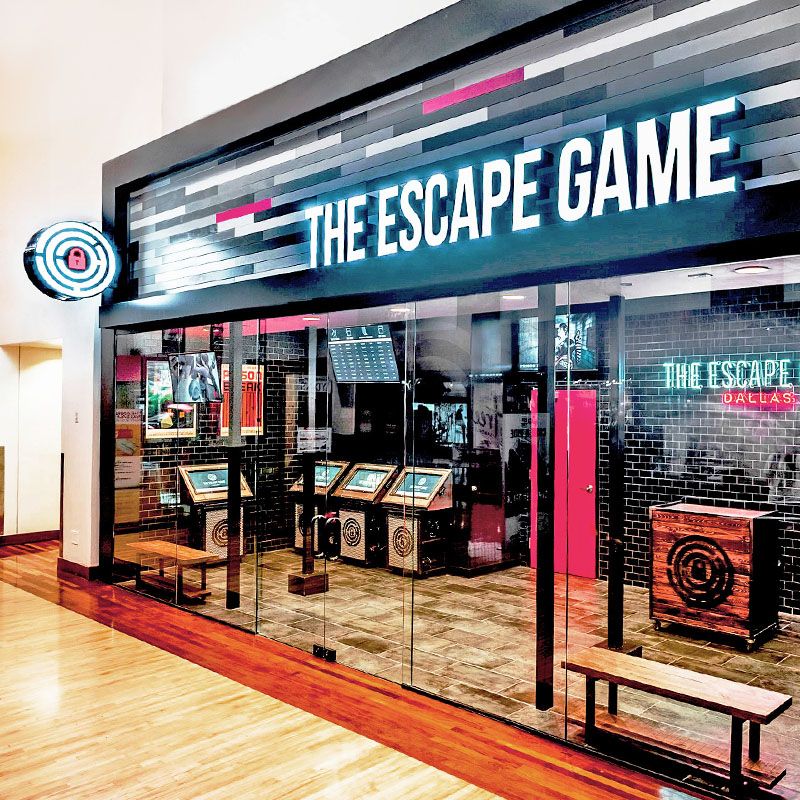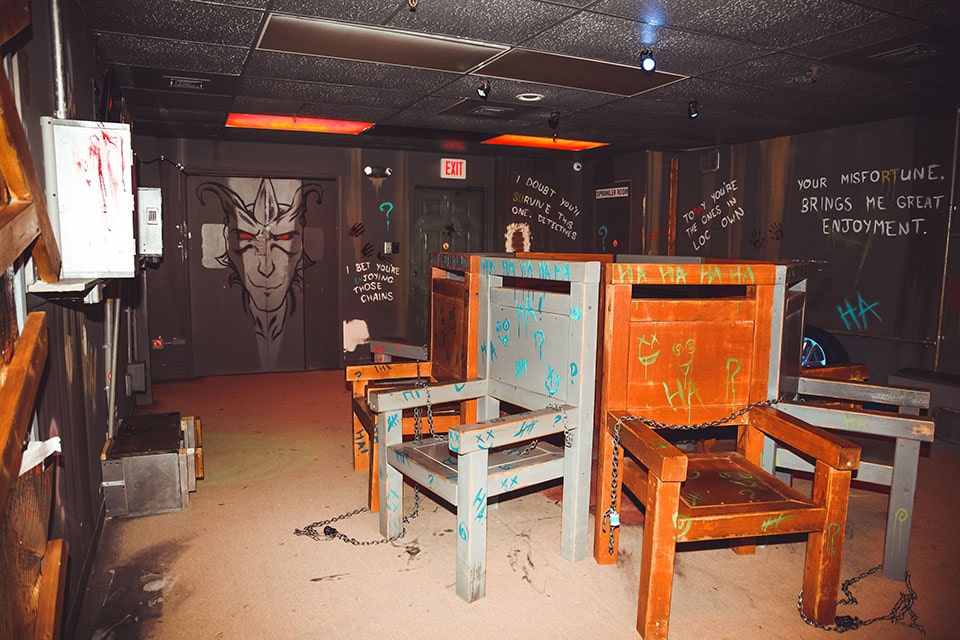Group Techniques: How to Team up Successfully in an Escape Space
Navigating the complexities of a getaway space requires greater than plain excitement; it requires a well-coordinated technique grounded in clear communication, calculated function tasks, and adept time management. Groups should actively pay attention to each member's insights, appoint roles that align with specific strengths, and maintain normal check-ins to ensure emphasis and stop redundancy. By cultivating an environment that values communication and versatility, teams can dramatically increase their performance and success rates. The subtleties of these strategies can change the experience, however just how specifically can they be applied to make the most of the capacity for success?
Establish Clear Interaction

To facilitate clear communication, it is essential to assign a central point of get in touch with for info circulation. Quick, focused updates from each team participant can keep the group informed without overwhelming them with info.

Appoint Roles Tactically
While clear communication establishes the foundation for effective synergy, appointing roles tactically makes sure that each group participant's strengths are utilized effectively. In a getaway space scenario, the time-sensitive and intricate nature of challenges requires a well-organized approach to task delegation. By determining and leveraging specific expertises, teams can optimize their analytic capacities and boost overall efficiency.
Someone with an eager eye for detail might succeed in finding hidden things, while a rational thinker could be much better fit to resolving problems. This duty often calls for solid organizational and social skills.
Second, make sure that functions are flexible and versatile. As brand-new obstacles emerge, the team needs to be able to pivot, reapportioning tasks as required. This versatility helps preserve energy and prevents bottlenecks that could happen as a result of rigid duty jobs.
Ultimately, a tactical approach to function project not only makes best use of the staminas of each employee yet likewise fosters a cohesive atmosphere, driving the group towards a successful escape.
Use Diverse Abilities
Identifying and harnessing the diverse skills within your group can substantially raise your performance in a getaway area. Each employee brings one-of-a-kind toughness to the table, and effectively leveraging these capabilities can expedite analytic and boost total effectiveness. As an example, an employee with strong logical abilities may stand out at decoding intricate codes or patterns, while an additional with eager observational abilities may quickly spot hidden ideas that could ignore.
Efficient communication is vital to making use of these diverse skills. Urge staff member to voice their insights and concepts without delay, making certain that all prospective solutions are taken into consideration. This comprehensive strategy cultivates a dynamic setting where creativity and essential reasoning can grow. Additionally, designating jobs that align with each participant's toughness can stop traffic jams and guarantee that development is continual.
Moreover, variety in abilities commonly equates to variety in assuming designs, which is vital in an escape area setup. While some challenges may call for sensible reasoning and accuracy, others may gain from creative and association of ideas. By identifying and leveraging this variety, groups can resolve a wider series of obstacles better, thereby increasing their possibilities of a successful retreat.
Manage Time Effectively

First, designate initial minutes for a quick survey of the room. Identify visible problems and divide tasks based upon group members' staminas, ensuring that nobody is still. Set inner time checkpoints to assess development occasionally; for example, objective to have half the problems solved you can check here by the mid-point of the video game. This method can aid maintain the team concentrated and protect against time from sliding away unnoticed.
Furthermore, avoid passage vision. If a challenge is taking too long, revolve employee or go on to another challenge, returning later with fresh perspectives. Interaction is extremely important-- keep every person upgraded on resolved challenges and continuing to be tasks to stay clear of repetitive efforts.
Lastly, make use of any kind of tips or clues moderately however purposefully - best escape room. Understanding when to request for aid can save important time. By sticking to these time monitoring principles, teams can considerably improve their opportunities of an effective and enjoyable escape room experience
Debrief and Show
Reflection is a vital facet of team growth and renovation in the context of escape rooms. Once the challenge is finished, whether effectively or otherwise, it is essential for the group to take part in an organized debriefing session. This procedure enables staff member to assess their performance, recognize staminas, and pinpoint areas for improvement.
Begin the debrief by reviewing what worked out. Highlight details instances of effective interaction, analytic, and cooperation. Acknowledging these positive actions enhances them and go to my blog motivates their repetition in future difficulties.
Talk about minutes of complication, miscommunication, or inadequate strategies. Urge an open and useful dialogue where group members see can share their perspectives without worry of objection.
Verdict
Finally, effective collaboration in an escape area is based upon clear interaction, strategic role jobs, the efficient application of diverse abilities, and proficient time monitoring. Routine check-ins and organized debriefings are important for preserving focus and fostering constant improvement. By creating a natural and adaptive team setting, the probability of successfully addressing problems and accomplishing the objective of getting away the area is substantially boosted. This approach not just guarantees success but additionally promotes cumulative growth and learning.